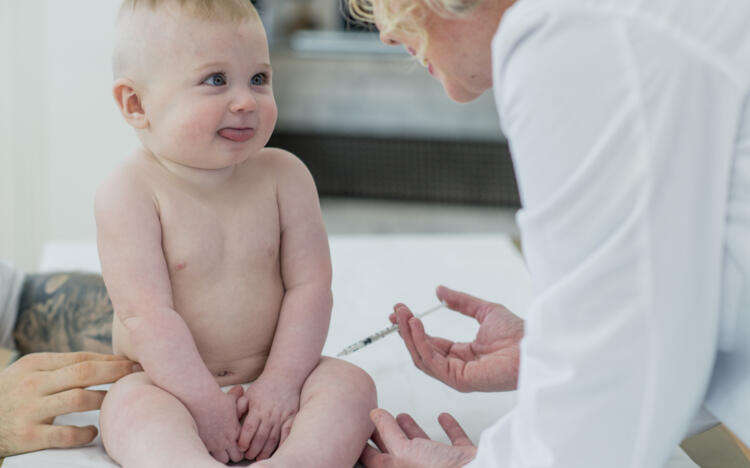The measles vaccine contains a weakened version of the measles virus to produce immunity, without serious disease. Two doses of measles vaccine provide immunity from measles for 99% of people who receive them.
The measles vaccine is one part of the MMR (measles, mumps, rubella) or MMRV (measles, mumps, rubella, varicella) vaccines. It is not available as a single vaccine in Australia.
Measles vaccine is recommended for:
- children ≥ 12 months of age
- adolescents and adults born during or since 1966 who have not received 2 doses of measles vaccine, particularly
- healthcare workers
- childhood educators and carers
- people who work in long-term care facilities
- people who work in correctional facilities
- travellers.
Under the National Immunisation Program and in state and territory government programs, the measles vaccine (as part of the MMR or MMRV combination vaccines) is funded so that it is free for almost everyone (although you may be charged a consultation fee).
If you were born before 1966, you have probably had measles or developed immunity to it through exposure. You can have this tested, if you don’t know whether you have had measles or not. It may be faster and easier to be vaccinated than to be tested.
Who can’t have a measles vaccine?
Some people are unable to be receive the measles vaccine (as part of the MMR or MMRV vaccines) because of another illness, or because of a current health situation. These people need to rely on people around them being immune to prevent the spread of measles and other diseases that could cause serious complications. This group might include:
- people with HIV or AIDS
- people taking certain medications, such as high dose corticosteroids
- people receiving treatment that affects their immune system, such as chemotherapy and radiotherapy
- people with some kinds of cancer, such as Hodgkin lymphoma or leukaemia.
The measles vaccine is also unsuitable for pregnant women, and women should be careful not to become pregnant within 4–8 weeks of vaccination.

